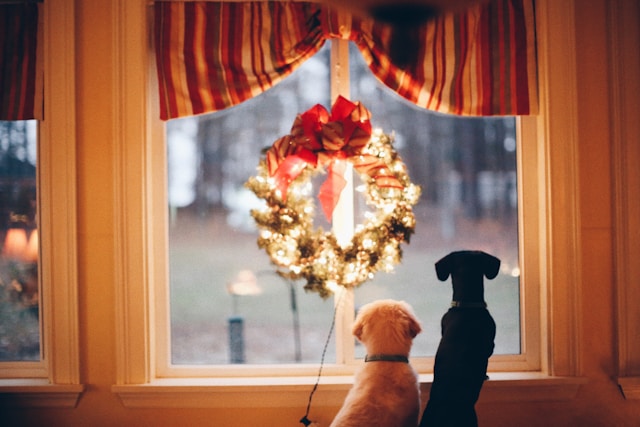The holiday season can be a time of joy, togetherness, and celebration. It can also be chaotic, stressful and overwhelming, as many couples navigate myriad stressors that may impact the security of their relationship. Relationship insecurity often leads to conflict, leading to more relationship insecurity and thus becoming a negative feedback loop!
Relationship security is one of the main factors influencing individual stress. We are stronger together than alone and a secure relationship is the best defence against external stressors. Conversely, relationship insecurity makes us more susceptible to life’s stressors. Once stress gets into a couple’s system it can be hard to eliminate, which is why, at this (often stressful) time of year, couples actively prioritise the security of their relationship’s couple bubble.
Here are some general principles to ensure you keep your couple bubble secure over the festive season. You don’t have to find this time of year stressful to apply them and you can use them at any time of the year.
The principles can be remembered by the 5 Ps: Plan, Protect, Pause, Praise and Play
Plan
Two of the greatest stressors at this time of year are individual capacity and managing external relationships and responsibilities (thirds). Going in with a game plan of how you will jointly manage these will save a lot of potential pain and conflict in the future.
Make time to engage in open and honest dialogue to identify how much capacity you have for family, socialising, housework, fun and all other events. Capacity may mean your physical, mental or emotional bandwidth.
Questions to ask yourself (and each other) include: how much do you have in your tank to get through this time of year? Are there places where you need to lean on each other a little more? Are there areas where one of you can shoulder more load? Are there times or places where you require a cap or limit?
For example, you may need to limit the number of social events over the holidays or the amount of time spent with extended family. One of you may be able to take up more slack with chores, Christmas shopping, parenting or the division of other responsibilities. Not everyone has the same level of energy and ability at this time of year and it’s important that both of you feel like you can enjoy rest and recreation.
Protect
Family and in-laws are often the biggest stressors at this time of year. Extended family time can bring attachment wounds and trauma triggers to the surface.
As partners, we must take steps to ensure we protect each other from external (as well as internal threats). A relationship where both partners protect each other inside and out is a hallmark of secure functioning.
Approaching interactions with family and in-laws as a team is essential in reducing stress and reinforcing your couple bubble’s integrity. Decisions related to family engagements should be collaborative and you must demonstrate a united front to the external world. This front sends a clear signal that the couple’s relationship is a priority above all.
Does one or both of you need protection from extended family or even friends? This doesn’t necessarily mean wading into family arguments. It could be as simple as ensuring that partners are not left alone at vulnerable times or with particular persons. It may involve checking in with each other at regular times or having an exit plan if things become too difficult. Maybe you develop a code word to signal to each other when you need the other to step in or that it’s time to leave.
By setting and communicating such boundaries together, you create a protective shield around your relationship, ensuring you both feel secure and supported.
Pause (even when things are fine)
Apart from vacations, this is usually the one period of the year when couples spend extended periods close together. Proximity can allow irritation and tension to rise as our nervous systems slow down, and we tune into all the emotions and feelings buried under our busy lives. When we start to feel we open a Pandora’s Box of emotions and triggers.
Building regular timeouts can allow some breathing space. Quality time apart is just as vital as quality time together.
Staying attuned to each other’s emotional states can also be invaluable in helping you stay present and attuned to each other’s needs. Incorporating mindfulness exercises into your daily routine, such as joint meditation or simply taking a moment to breathe together can be helpful.
By tuning into the present moment, you cultivate emotional regulation, reducing the likelihood of misunderstandings or conflicts arising from dysregulated nervous systems.

Praise
It doesn’t take much for resentments to build up and emerge when we are feeling unsafe, stressed or dysregulated. John Gottman calls resentment one of the four horsemen of relationship demise. The antidote to resentment is fondness and appreciation.
Taking time to express fondness and appreciation for each other over the holiday period is important. Thank each other, and express gratitude for each other’s presence and any acts of service, no matter how minor.
It can be hard in practice but try to lead with the positive. If you need to say something critical try and soften it with a compliment. This allows your partner’s nervous system time to relax and means that any criticism is less likely to escalate into conflict.
Play
In many ways, this is the most important principle. Take time to cultivate a sense of fun and playfulness. Often the relationship takes a back seat as we prioritise rest, family commitments and finally having the opportunity to do that long overdue spring clean! Connect, go on walks or dates or find and prioritise other forms of intimacy.
Relationship rituals can be an excellent way of connecting and creating meaning. Whether it’s a nightly check-in, a holiday tradition, or a shared activity, creating rituals of connection fosters predictability and emotional safety. These rituals serve as anchor points during the chaotic holiday season, grounding you in your shared commitment and deepening emotional connection.
Final words
It goes without saying that this time of year is not safe for everyone for a variety of reasons. If you are one of those people, it’s important to know that you are not alone and that there are resources and supports out there. These include:
Beyond Blue 1300 224 336
Lifeline 13 11 14
1800Respect 1800 737 732
However you spend it, you have a safe, relaxing and connected holiday period.
Struggling with the festive season? Couples therapy can help support you through challenging times.

